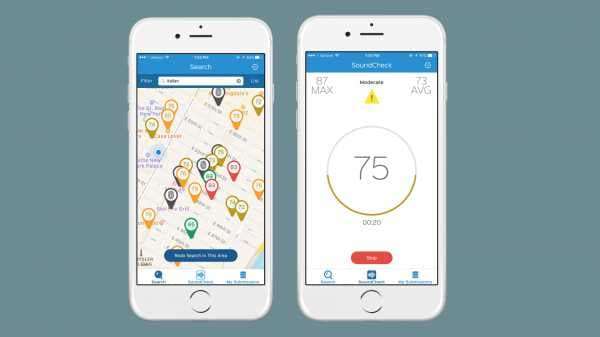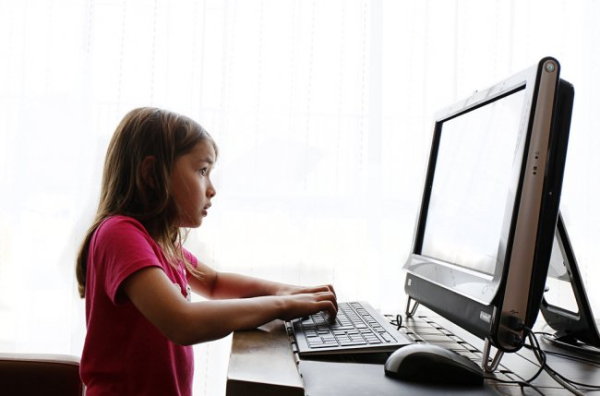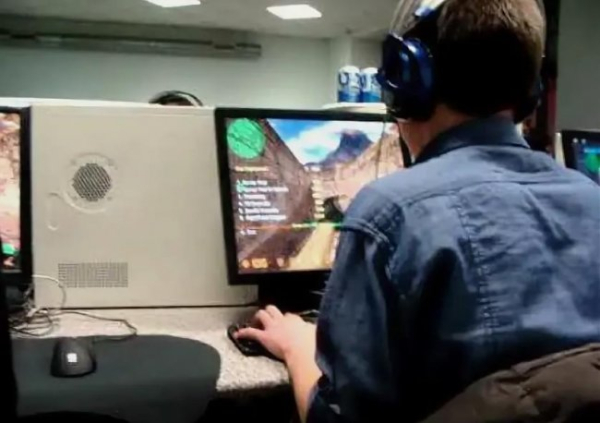
So many urban spaces, from the gym to the subway system, have become unbearably loud. And this din is slowly degrading our hearing in subtle, irreparable ways.
One space where it can be especially frustrating to be forced to shout is a restaurant. Both Zagat and Consumer Reports surveys have found that excessive noise is the chief complaint diners have — ahead of service, crowds, or even food issues. Not being able to hear the people we’re dining with can make connecting painfully difficult.
Now there’s an app to help people who are struggling to find a quiet place to eat or drink. It’s called SoundPrint, and it’s basically Yelp for noise levels in more than 3,000 restaurants, bars, and cafes across America (and counting).
Help our reporting on noise pollution
We’ll be following up with more reporting on noise pollution, and we want to hear from you. If you have any questions or stories to share, or you’ve been harmed by noise pollution, email reporter Julia Belluz at [email protected].
But most exciting is the fact that SoundPrint runs off citizen science. The app has a decibel reader, and its noise reviews are generated by SoundPrint users, who can submit their decibel readings — from quiet and moderate to loud and very loud. Most venues registered on the app have volumes that are not conversation-friendly or could be deafening.
I wanted to learn more about SoundPrint, which is currently in stealth mode and will officially launch in May 2018, so I called its creator, Greg Scott*.
Scott, like nearly 40 million American adults, is hard of hearing. His experience has inspired him to become a champion for all the people who have ever strained to hear their companions in a restaurant. In a conversation over FaceTime, so Greg could lip-read, I learned about the patterns he’s discovered in his SoundPrint data, including the types of restaurants that are the loudest and which to avoid, and how he manages to find quiet spots even in cities his app doesn’t yet cover.
The following conversation has been edited for length and clarity.
Julia Belluz
Hearing loss is sometimes described as an invisible handicap because many people live with it but we can’t see it and don’t always know it’s there. And so we underappreciate the challenges people who are hard of hearing face. Can you help me understand what it’s like to navigate our noisy soundscape when you have hearing loss?
“I get a lot of pain in my shoulders because I’m constantly leaning in to figure out what people are saying”
Greg Scott
It requires a lot of mental energy and focus throughout your entire body. Leaning forward, trying to separate what is noisy from what is the person saying. You hear fragments of what they’re saying. It’s like the show Wheel of Fortune.
It’s hard enough when there’s no background noise, but when you add excessively loud background noise, you’re constantly guessing. And your chances of mishearing somebody go up.
Sometimes it’s harder to connect with people — you think they said [something] but you’re not sure. It’s just frustrating. I get a lot of pain in my shoulders because I’m constantly leaning in to figure out what people are saying. It’s draining.
Julia Belluz
When I’m having trouble hearing, I also just retreat from conversations.
Greg Scott
I think a lot of people with hearing loss feel socially isolated, especially if they didn’t grow up with it. They don’t want to recognize it or have a hard time telling people about it. Me, I grew up with it — I don’t have a hard time telling people right off the bat.
I was born with normal hearing. I got meningitis at 11 months of age. And I lost most of my hearing, so I am completely deaf in my left ear and I have severe hearing loss in my right ear and a hearing aid in my right ear.
Julia Belluz
What led you to finally create the noise app?
Greg Scott
I live in New York City, and I wanted to be able to hear my dates, to connect with them. I would go to Google and Yelp and search for “quiet” in the user comments. I had a list of places, 10 to 20. But most of the time, these places would not be quiet at all.
So I started taking out a decibel meter because I wanted to see how loud [these venues were]. Maybe it was me; maybe I was losing my hearing. I found out the noise levels were too high — not conducive to conversation — and that they can endanger the hearing health of venue employees and patrons. So I created this quiet list and started sharing it with friends, some in the hearing loss community, some normal-hearing friends.
I was traveling home one week [to California], visiting my mom. She said, “Where do you want to go out to dinner?” I said, “Someplace quiet so we can talk.” She asked if I knew of a quiet place, and I said no. I knew them in New York.
With SoundPrint, I basically took a decibel meter and made it crowdsourceable.
Julia Belluz
You’ve put the data generated by the app to good use. I saw that you have a study that’s currently undergoing peer review about your noise readings in Manhattan venues, in which you found the average sound levels taken by app users can lead to noise-induced hearing loss. What other patterns have you noticed?
Greg Scott
We found differences in the average noise level by neighborhood. In uptown [Manhattan], the average sound level is much quieter than downtown.
Second, overall, restaurants are too noisy for conversation in general, and a significant number endanger the hearing health of patrons. Bars are even worse. The average sound level for bars is very loud [over 80 decibels]. It’s dangerous.
Julia Belluz
Is it true Japanese restaurants are typically quieter than other restaurants? And are you finding any other relationships between noise and cuisine?
Greg Scott
There are some that tend to be quieter: Japanese, Indian, Chinese; whereas American, Mexican, Latin, Spanish are much louder. You can make these cultural stereotypes — I always like to say Americans are too loud — but you gotta be careful in saying those things.
But if you want to find a quiet spot in New York, go to the Upper West or Upper East Side and look for an Indian or Chinese or Japanese spot.
“Ask managers to reduce the sound levels — if they refuse, show them the decibel reading showing that it’s ‘too loud’”
Julia Belluz
What other tips do you have for people who want to find quiet spots to go out?
Greg Scott
Search for restaurants that have better sound absorption features in their interior design — tablecloths, upholstered chairs, plants, drapes, sound absorbers. It’s better if tables are farther apart from each other. Ask managers if they can seat you in a quieter area in the restaurant, or seat you away from an open kitchen or espresso machines.
Also ask managers to reduce the sound levels — if they refuse, show them the decibel reading showing that it’s “too loud.” I do it all the time. Sometimes they accommodate; sometimes they refuse. And add a comment on the manager’s response on the app after taking a reading.
When people find quieter spots, take measurements there, in addition to the noisy ones — [they] can promote those restaurants and reward them with our feet and dollars.
Julia Belluz
What do you hope to achieve with the app?
Greg Scott
I want to help us all find the quieter spots. And let’s hope by using the app, by taking measurements, people will vote with their measurements, signaling to the restaurants that they should consider sound acoustics more and mitigate it.
I want to give [restaurants, bars, and cafes] incentives to mitigate the noise if possible. I want to work with these venues and hope they reach out to me.
Julia Belluz
Final question: Has your dating life improved since creating the app?
Greg Scott
It improved my dating! I was able to have two serious relationships. I’m single now, but by finding these quieter spots, it made things much easier from a dating perspective. It [meant] knowing a place was most likely going to be quiet when you show up and not worrying about having a backup plan.
*Greg is a private person and does not want to mix up his professional identity and app developer identity. So he operates his app under the alias Greg Scott, which is the name we’ve used here.
Sourse: vox.com






